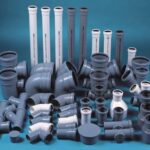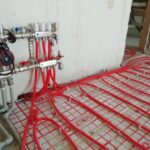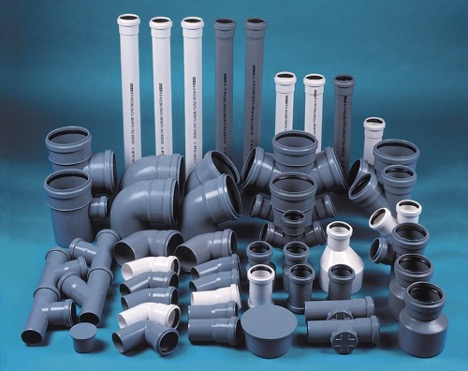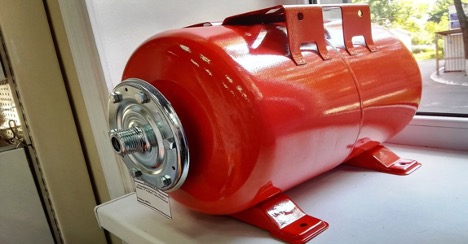Service life of cast iron sewer pipes: what temperature can they withstand?
Cast iron sewer pipes have long established themselves as a reliable and durable material for sewer systems. Cast iron sewer pipes often last more than several decades, making them an excellent choice for those looking for corrosion-resistant and durable solutions for their home or commercial property. One of the key advantages of cast iron pipes is their ability to withstand high loads, which is especially important in conditions of intensive use.
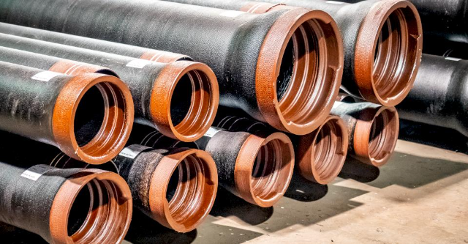
The content of the article
Temperature stability: an important parameter
In addition to mechanical strength, an important aspect is the temperature stability of cast iron pipes. They are able to withstand significant temperature fluctuations, making them an ideal choice for sewer systems. It is important to understand the temperatures these pipes can withstand to ensure reliable and trouble-free operation in all conditions. Cast iron pipes can be operated in a temperature range from sub-zero values, typical of winter conditions, to extremely high wastewater temperatures, without losing their performance qualities.
Service life of sewer pipes made of cast iron
You should understand that the service life of such pipes may vary depending on a number of factors, including the following:
- terms of Use;
- quality of material;
- correct installation.
In general, cast iron pipes are known for their strength and durability, allowing them to last 50 to 100 years or even longer. This makes them one of the most reliable and cost-effective options for sewer systems.
One of the key advantages of cast iron pipes is their high resistance to corrosion. Especially if they are processed correctly. They must also be protected from direct contact with wet soil and other corrosive environments. In addition, cast iron pipes can withstand high mechanical loads. This makes them an ideal choice for use in areas with high groundwater levels. They are also needed where high compressive and impact strength is required.
However, the durability of cast iron pipes can be reduced due to various external and internal factors. These factors include the following:
- aggressive environment;
- incorrect installation;
- insufficient protection against corrosion;
- mechanical damage.
Not only do you have to ensure a good installation and regular maintenance, including checking for damage and corrosion. You must deal with blockages regularly.
In conclusion, the longevity of cast iron sewer pipes makes them a profitable investment solution for municipal and private sewer systems. However, to achieve maximum durability, all potential risks must be considered. And you must ensure proper care and maintenance of the system.
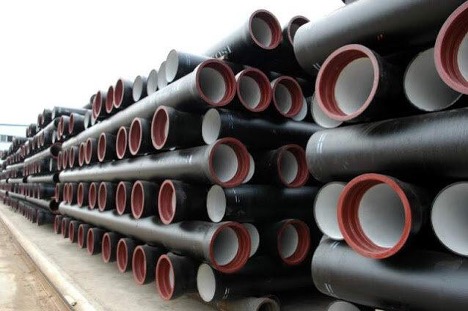
Influence of operating conditions on durability
Operating conditions have a significant impact on the service life of cast iron sewer pipes. It is important to protect pipes from external damage and monitor the condition of the sewer system. This way you can identify and fix possible problems in a timely manner.The key factors determining the durability of cast iron pipes are:
- The quality of cast iron and its resistance to corrosion.
- Correct installation.
- Ensuring reliable connections between individual elements of the system.
- Regular inspection and maintenance to prevent blockages.
- Identify other problems that could cause damage.
How to increase the service life of a cast iron sewer riser?
Increasing the life of a cast iron sewer riser requires compliance with several key recommendations aimed at preventing corrosion, mechanical damage and other factors that can lead to accelerated wear. Taking these measures will help ensure the longevity and reliability of your sewer system.
It is important to ensure correct installation and installation of cast iron risers. This includes using quality seals and ensuring pipes are adequately secured to walls or other structures. This is the only way you can minimize the risk of mechanical damage from vibration or movement. You will also need to use anti-corrosion coatings or insulation to protect the pipes from moisture and corrosive environments. This significantly extends the service life of cast iron pipes.
Further, regular maintenance and inspection of the sewer system allows you to promptly identify and eliminate possible defects in cast iron pipes. This includes checking for the following issues:
- cracks;
- rust;
- leaks and blockages.
You need to carry out preventive maintenance regularly. This is to remove deposits and prevent blockages. These steps will help avoid putting too much pressure on the pipe walls. After all, this can contribute to their premature wear.
Finally, it is important to consider the environmental aspects of operating a sewer system. Avoiding harsh chemicals in your drains that can contribute to cast iron corrosion is key to extending the life of your cast iron sewer riser. Using filters and separators to prevent the entry of solids and waste also helps maintain the integrity of the sewer system.
Compliance with these recommendations will help ensure reliable and long-term operation of cast iron sewer risers. With our tips, you will minimize the need for frequent repairs and replacements.
Conclusion
Cast iron sewer pipes continue to be popular and trusted as a material for drainage systems due to their high resistance, long service life and ability to withstand high temperatures. Subject to careful handling and systematic maintenance, the service life of cast iron sewer pipes can significantly exceed expected values, thereby ensuring the economic efficiency of their use at various sites.

